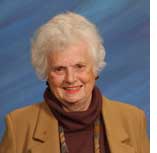By Natasha Josefowitz, Ph.D.

LA JOLLA, California — It is time to have a heart-to-heart talk with our brains. Human brains are wired to meet the needs of our ancestors. Those who had descended from the tree tops to walk upright needed to fend off predators, especially other humans.
It is by knowing the propensities of our primitive brains that we can challenge them to behave in more civilized ways. Our instinctual urges do not need to control our actions. There is a rational “I” that, if trained to be mindful, can make different decisions and indeed control our actions and reactions. But first, we will need to become aware of our primal inclinations.
Like all other animals, our species’ survival was predicated on distinguishing between members of our own tribe and others who might want to steal our women, our goats, or our territory. The brain is wired to see these others as a threat within a split second. It is our amygdala, a region that puts out alarm, that reacts with fear when confronted with someone unknown who looks different. Given time to reflect, the upper brain, the cortex, can decide that the danger is not real and cancel the alarm. This does not always happen; according to Dr. Anna Fels of the Weill Cornell Medical College (New York Times, April 14, 2017), we may extend the fear of the current threat into future ones and preemptively kill off an entire group that conforms to our definition of “other.”
Hostility is activated when there is an unequal allocation of resources or a transgression of cultural traditions which are threats to social coherence. This happens when cultural beliefs are challenged (such as diversity or the re-definition of gender). When our rigidly held beliefs are shaken, our reaction is not to challenge, but to destroy those who do not conform. For some, the threat to one’s beliefs is a threat to one’s identity. We wish to punish those who make us feel threatened. Revenge activates the brain’s reward center giving a sense of satisfaction, even pleasure, especially if the hate is shared and revenge is acted upon as a group.
We tend to believe what our group believes; to do otherwise would endanger our membership; exclusion is one of the most powerful punishments experienced. Brain scans show that rejection is experienced as physical pain. (“The Pain of Exclusion” by Kipling D. Williams, Scientific American Mind, January 2011.) Even if we don’t agree with our group, we tend to silence our disagreements to remain part of “our tribe.” This is why we see group attacks on others whose only threat is a different set of beliefs or identity, whereas an individual might not act alone.
Another chemical messenger, oxytocin, promotes social bonding and recognition including parental behaviors. It is released when mothers give birth to maintain a bond with their infants; fathers also get a surge when they see their newborn. Oxytocin increases generous behavior; it creates trust and can be induced just by giving someone a hug. According to Paul J. Zak (Wall Street Journal, April 28, 2012) our species has orchestrated caring behaviors by creating opportunities to bond: dancing, singing, and group activities. All of these increase levels of oxytocin—promoting trust and generosity. Feeling connected to a winning sports team gives a high of excitement from oxytocin, while the opposite, seeing your favorite team lose, has, at times, resulted in violence arising from the effects of another hormone, cortisol.
In our common language, we talk of people being warm or cold; this is not so far fetched. In an experiment giving some people a hot drink and others a cold drink to hold while walking by a homeless person begging on a street corner, the warm-drink holders were significantly more generous than the cold-drink holders. These reactions are outside of our consciousness.
Instead of confrontations, a civilized society requires dialogue, tolerance, and acceptance of differences. Initiating community activities where people can get to know each other as humans is an important means to our common shared need for friendship, fun, family, and significance.
Summer camps that have included Israeli and Arab children have been successful in reducing and even eliminating animosities. Back in the 70s and 80s I led a group comprised of Caucasian, African American, and Asian members living together for a week in Bethel, Maine, as part of NTL (National Training Laboratory)’s effort to understand and accept each other in our shared humanity. Creating such opportunities is one of the ways to successfully overcome prejudice, bigotry, and fear of the other.
© Natasha Josefowitz. This article appeared initially in the La Jolla Village News. You may comment to natasha.josefowitz@sdjewishworld.com